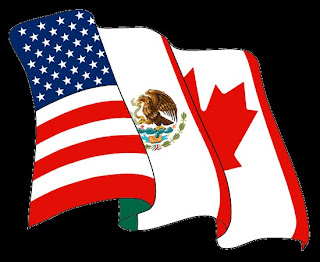
As wallets and purses around the world snap shut in close unison, there is yet another eerily titled phenomenon upon us.
"Ghost Malls" are becoming an increasingly common sight, pockmarking the retail landscapes of countries around the world. As consumer preferences shift toward thrift and keeping a roof over their heads in troubled times, shopping malls find themselves deprived of lease-paying retail tenants. Some might argue that aside from the obvious large scale contractions in consumer retail spending, there are certain transformational shifts occurring that consign malls to a fate most certain.
As anybody not stuck in solitary confinement for the previous decade might know, the internet has created incredible potentials in every sector of the economy. The astronomical growth of web-based businesses, the immense wealth created through the entrepreneurial spirit and the spread of information are all fine and dandy. Now, when I said "potentials" two sentences back, I was not referring solely to the positive potentials.
Everybody likes a deal and no-one likes to pay more than somebody else for a product or service. The great variances of housing price, median income, and cost of living does vary substantially from Wheeling, West Virginia to - say, Malibu, California - but Cletus and Barbie both pay pretty much the same price for identical items in their respective areas. The great equaliser is the access to decentralised "virtual" retail outlets.
Now, thanks to the Internet, there is significantly less need for physical "bricks and mortar" storefronts. Freed from the fiscal constraints of having to rent or lease property and employ higher numbers of front-line staff, these web-based retailers can offer goods at prices that very few traditional retailers can effectively compete with. What we are left with is evident. A handful of large companies controlling most of the retail business, and lack of diversification of retail outlets. In Cambridge, Ontario, where I live - I have seen 3 Starbucks coffee joints open in the last year or so. My Wife is of the opinion that Starbucks, having researched Cambridge, found out that we are supporting 11 full service Tim Hortons as well as 3 kiosk locations with a population of approximately 125,000. I would bet you a large regular that this type of growth pattern will not be sustained, and that within a few years at the outside, some of these retailers will be unable to eke out a living selling their wares. Did anybody see over-saturation becoming a potential deal-breaker?
I came across this article that provided me a few ponderances on this trend.
Once burgeoning centres of cultural identity throughout the western world, Malls are pre-deceased by "Mom&Pop" corner stores and Farmers. Donations can be made, via Paypal to Amazon.com's Ebay Powerseller account.

















